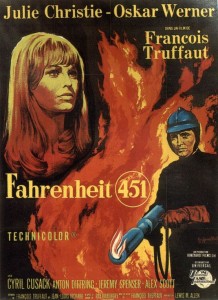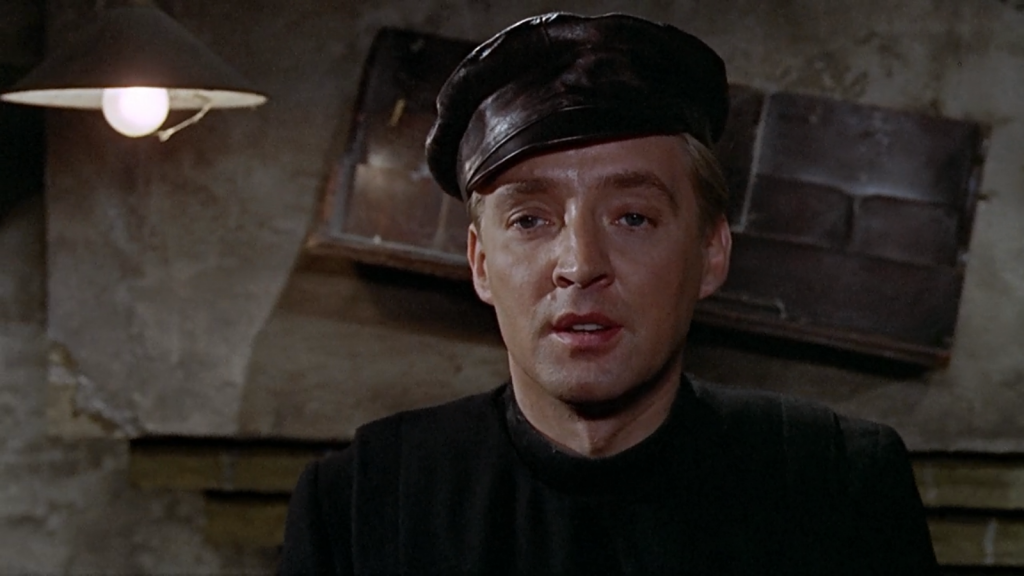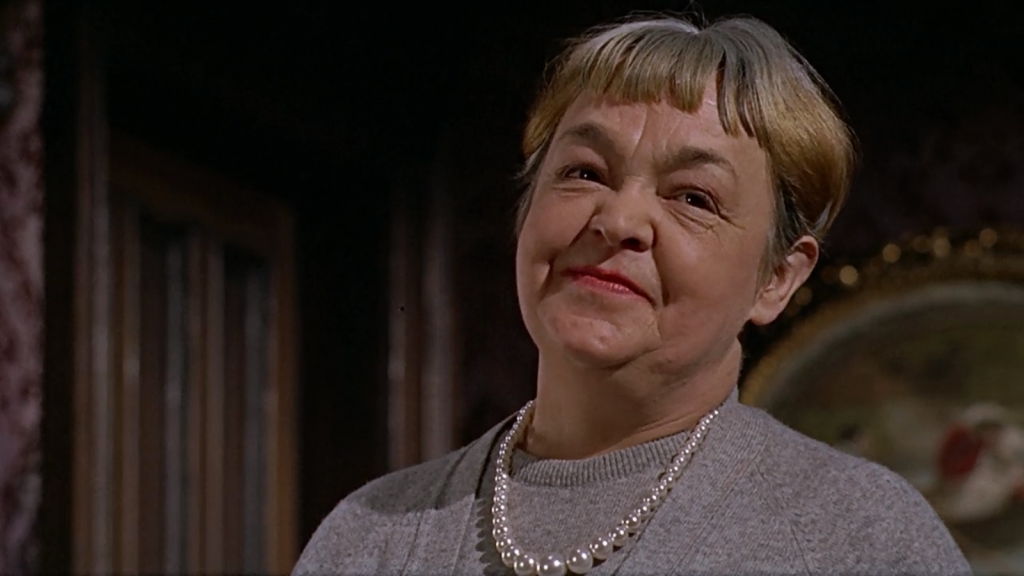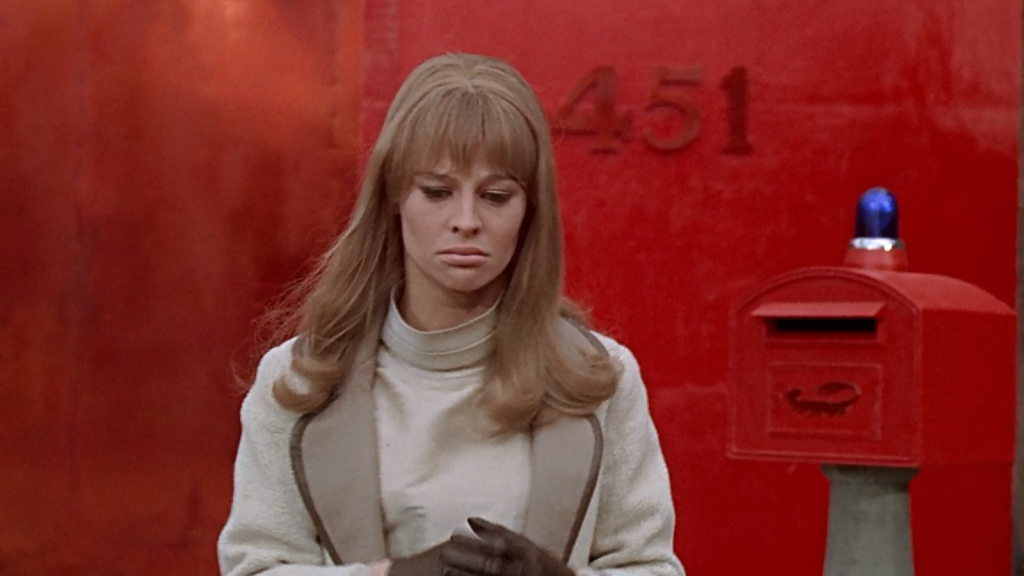Fahrenheit 451 (1966)
“We burn them to ashes, and then burn the ashes — that’s our official motto.”
|
Synopsis: |
|
Genres, Themes, Actors, and Directors:
Response to Peary’s Review: While Peary’s hypothesis is a provocative one, I don’t think it quite holds water. First, as much as he adored every aspect of films and filmmaking, Truffaut was a deeply literate man who found tremendous value in books and writing — as is evident not only in many of his other films (where he often shows his characters engaged in thoughtful writing), but through his lifelong work as a screenwriter, as well as his frequent decision to adapt novels for the screen. Second, Montag isn’t shown being “seduced” by Clarisse in any way — in fact, their relationship never smacks of anything other than complicity in their growing awareness of how restricted their lives are. Linda and Clarisse (cleverly portrayed by the same actress — though this wasn’t Truffaut’s original intent) simply serve as dueling catalysts in Montag’s deeply personal struggle — indeed, Fahrenheit 451 is all about Montag. On that note, Werner and Truffaut notoriously butted heads over their conception of how Montag should be portrayed, to the point where their friendship ended bitterly and Werner attempted to sabotage continuity in the final scenes of the film by cutting his hair (!). While many disagree, I find Werner’s performance to be oddly compelling, in a robotic sort of way — he acts exactly how I would imagine a man in his position (and within this particular society) might act under such circumstances. Meanwhile, though Christie’s performance as short-haired Clarisse (her wig is terrible) isn’t particularly noteworthy, she does a fine job portraying Linda as a willing Stepford Wife, exhibiting an appropriate air of befuddlement when her husband suddenly begins to sabotage the secure life they’ve created for themselves. The best performance in the film, however, is a brief one given by stage actress Bee Duffel as “The Book Lady”, whose love of books overrides any other sense of self-preservation; she’s haunting to watch in her few moments on screen. As a whole, however, I agree with Peary that the film is somewhat of a “disappointment”, perhaps due in part to limitations in the original novel (which I haven’t read in many years — but message board posts on IMDb corroborate this suspicion). There are ultimately too many glaring inconsistencies and unanswered questions in the story itself to allow this adaptation to be anything other than a provocatively stylized rendering of a uniquely dystopian society; as DVD Savant puts it, “Conceptual problems that may have been easy to evade in print, leap out of the movie screen”, mostly revolving around Truffaut’s choice to show the entire society as “printless”. Yet it’s certainly worth a one-time look by film fanatics — for its visuals, its enduringly relevant themes, and a stand-out score by Bernard Herrmann. Redeeming Qualities and Moments:
Must See? Links: |




One thought on “Fahrenheit 451 (1966)”
A once-must, mainly for its one-of-a-kind premise, executed (as I see it) in a mostly satisfying way.
I’ll agree that this is a somewhat-flawed piece. But, not having seen it in quite a long time, I was surprised to find myself rather caught up in it. Not being a major Truffaut fan, I still think it’s refreshing to see him tackle a subject that has nothing to do with sex. (Some of his dullest films hinge on men obsessing on women or the state of being immature men.)
‘F451’ gets much mileage out of the fact that an anti-book world is a scary one. Authority being afraid of (and more or less banning) the world of ideas is not far removed from authority being confronted or questioned in general. So the premise has a thick layer with which to work. It’s also kind of frightening to see how dull and defensive citizens in the film are when they don’t read.
The script doesn’t seem to allow for complex characters since it’s the premise that drives the film. So I find it odd that Werner and Truffaut would clash over interpretation. The story is rather straightforward and the concept is rather one-note. Which is why Christie stands out, since playing a dual role alone gives her complexity.
Special mention goes to Herrmann’s score – which reminds me slightly of his rich score for ‘Vertigo’: very dreamy and other-worldly (appropriately, since both films have an other-world nature).